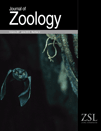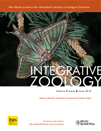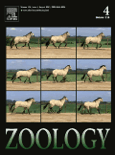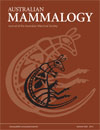
ACTA ETHOLOGICA
Scope & Guideline
Shaping the Future of Ethological Research
Introduction
Aims and Scopes
- Behavioral Ecology:
Research exploring the ecological and evolutionary implications of animal behavior, including mating systems, foraging strategies, and social interactions. - Anthropogenic Effects on Behavior:
Studies examining how human-induced changes, such as urbanization and pollution, influence animal behavior and ecology. - Comparative Ethology:
Investigations into behavioral patterns across different species, highlighting evolutionary adaptations and behavioral diversity. - Physiological Influences on Behavior:
Research that connects physiological factors, such as hormonal changes, to behavioral outcomes in various animal species. - Conservation Behavior:
Studies focusing on the behavioral aspects of conservation biology, including the impacts of habitat loss and species interactions.
Trending and Emerging
- Urban Ecology and Behavior:
There is a notable increase in studies examining how urban environments affect animal behavior, highlighting the importance of understanding species adaptation to human-altered landscapes. - Social Behavior Dynamics:
Emerging themes focus on the complexities of social interactions among species, including cooperation, competition, and social networks. - Behavioral Responses to Climate Change:
Research is increasingly addressing how climate change impacts animal behavior, including adaptations to extreme weather events and changing habitats. - Technological Advances in Ethology:
The incorporation of new technologies, such as machine learning and remote sensing, is on the rise, enhancing the ability to analyze and interpret animal behavior. - Neuroethology and Behavior:
Growing interest in the neural mechanisms underlying behavior is evident, linking physiological processes with behavioral outcomes.
Declining or Waning
- Invasive Species Interactions:
Research on behavior related to invasive species has decreased, possibly as the field moves towards more integrative studies that consider broader ecological impacts. - Historical Behavioral Studies:
There seems to be a decline in studies that focus solely on historical accounts of animal behavior, which may be shifting towards more empirical and experimental approaches. - Laboratory-based Behavioral Experiments:
There is a waning interest in purely laboratory-based studies, as researchers increasingly favor field studies that provide more ecologically relevant insights.
Similar Journals

Mammal Research
Connecting Researchers to the Heart of Mammal StudiesMammal Research, published by Springer Heidelberg, is a prominent academic journal dedicated to advancing knowledge in the fields of Animal Science, Zoology, Ecology, Evolution, and Behavior. With an impressive Q2 ranking in both Animal Science and Zoology and Ecology, Evolution, Behavior and Systematics as of 2023, this journal is an essential resource for researchers and professionals seeking to publish innovative findings that contribute to our understanding of mammalian biology. The journal operates under an Open Access model, allowing a wide audience to access and engage with high-quality research articles. Converging between 2015 to 2024, Mammal Research serves as a vital platform for scholarly discourse, promoting rigorous scientific inquiry and collaboration among experts and students alike in the fascinating study of mammals.

Journal of Vertebrate Biology
Connecting researchers to the world of vertebrate studies.Journal of Vertebrate Biology, a reputable publication established by the Institute of Vertebrate Biology in the Czech Republic, serves as a vital platform for research across the fields of Animal Science and Zoology, Aquatic Science, and Ecology, Evolution, Behavior and Systematics. With its ISSN 2694-7684 and a commendable 2023 Q2 ranking in multiple categories, this open-access journal embraces innovative scientific inquiry and fosters academic discourse. The journal's commitment to disseminating high-quality research is reflected in its Scopus rankings, positioning it within the top quartile in several impactful areas. As it continues to converge its focus until 2024, researchers, professionals, and students alike are encouraged to engage with cutting-edge studies that advance our understanding of vertebrate biology. This publication stands out not only in its scholarly contributions but also in enhancing global awareness of biodiversity and conservation issues.

JOURNAL OF ZOOLOGY
Fostering understanding of wildlife and ecological challenges.JOURNAL OF ZOOLOGY, published by Wiley, stands as a premier scholarly journal in the fields of Animal Science and Zoology, renowned for its outstanding contributions to the knowledge of animal biology and ecology. With an impressive impact factor and a strong ranking in the Q1 category for Animal Science and Zoology, as well as Q2 for Ecology, Evolution, Behavior, and Systematics, the journal rigorously engages with both foundational research and groundbreaking discoveries since its inception in 1830. Located in Hoboken, New Jersey, this journal is dedicated to fostering the academic community's understanding of zoological sciences, providing access to important research that shapes wildlife conservation efforts and ecological studies. Although the journal does not currently offer open access options, it continues to attract significant attention, as evidenced by its strong Scopus rankings in related categories. Researchers, professionals, and students will find invaluable resources in the JOURNAL OF ZOOLOGY to advance their understanding of animal life and the ecological challenges it faces today.

Integrative Zoology
Connecting Disciplines, Unraveling NatureIntegrative Zoology is a distinguished journal published by WILEY, focusing on advancing the field of zoological sciences through the integration of various biological disciplines. With both ISSN 1749-4877 and E-ISSN 1749-4869 identifiers, this journal features research that fosters a deeper understanding of animal biology, ecology, and conservation strategies. As a testament to its impact, Integrative Zoology is recognized within the Q1 category of Animal Science and Zoology in 2023, ranking an impressive #27 out of 490 journals in its field, placing it in the 94th percentile among peers. Published in the United Kingdom, this journal not only serves as a critical platform for novel research but also engages a global audience, inviting submissions that bridge theoretical and practical aspects of zoology. While not entirely open access, the journal remains committed to disseminating high-quality research that contributes substantially to scientific advancements. Through its continuous publication since 2008, Integrative Zoology aims to inspire researchers, educators, and students alike, making it a cornerstone for anyone passionate about the complexities of animal life.

Zoological Letters
Unlocking the mysteries of the animal kingdom.Zoological Letters, published by BMC, is a premier open-access journal dedicated to advancing the field of zoology and animal science. Since its inception in 2015, the journal has established itself as a critical platform for researchers to disseminate their findings and contribute to the ongoing discourse in this vibrant discipline. Based in the United Kingdom, Zoological Letters boasts an impressive Q2 category ranking in Animal Science and Zoology for 2023, placing it within the top 25% of journals in the field. With a Scopus rank of #116 out of 490, representing the 76th percentile, it showcases the influence and reach of the research published within its pages. The journal’s substantial focus on contemporary issues and methodologies ensures that it is a vital resource for academics, professionals, and students alike, fostering innovation and collaboration throughout the global scientific community. Open access since 2015, Zoological Letters is committed to making scientific knowledge accessible, thus enhancing the visibility and impact of research in zoological studies.

ANIMAL BIOLOGY
Innovating Insights into Animal Behavior and EvolutionANIMAL BIOLOGY is a distinguished journal published by BRILL, focusing on the dynamic fields of Animal Science and Zoology, as well as Ecology, Evolution, Behavior, and Systematics. With an ISSN of 1570-7555 and an E-ISSN of 1570-7563, this quarterly journal serves as a pivotal platform for researchers and professionals seeking to contribute to the understanding of animal biology across diverse ecological contexts. The journal is recognized with a 2023 Scopus ranking of #234 out of 490 in the Animal Science and Zoology category, placing it within the 52nd percentile, alongside a rank of #409 out of 721 in Ecology, marking a solid contribution to the field. Although it currently holds a Q3 quartile in both categories, its commitment to quality research and novel insights continues to bolster its significance within the academic community. The open access option coupled with its publication history from 2003 to 2024 ensures a wide dissemination of knowledge, drawing in a global audience of researchers, professionals, and students eager to explore the intricacies of animal biology. By promoting high-quality discussions and innovative studies, ANIMAL BIOLOGY plays an essential role in advancing the understanding of life sciences and the evolution of biodiversity.

ZOOLOGY
Publishing impactful research for a deeper understanding of wildlife.ZOOLOGY, an esteemed journal published by Elsevier GmbH, stands at the forefront of research in the Animal Science and Zoology fields. With a notable impact factor and recognized as a Q1 category journal in its discipline, ZOOLOGY is highly regarded among researchers, ranking #98 out of 490 in Scopus rankings. Founded in 1994 and continuing through to 2024, the journal aims to publish cutting-edge, peer-reviewed articles that contribute significantly to the understanding of zoological sciences. Based in Munich, Germany, ZOOLOGY provides both subscription and open access options, ensuring that influential research reaches a wider audience. It serves as an essential platform for disseminating innovative findings, connecting scholars globally, and fostering interdisciplinary collaboration to advance zoological knowledge.

JOURNAL OF ETHOLOGY
Illuminating the Interplay of Behavior and EcologyJournal of Ethology, published by Springer Japan KK, is a prominent academic journal that focuses on the study of animal behavior and ecology. With an ISSN of 0289-0771 and an E-ISSN of 1439-5444, this journal serves as a critical platform for researchers, professionals, and students interested in the intricate dynamics of animal behavior and its ecological implications. The journal is recognized for its contributions to the fields of Animal Science and Zoology, and Ecology, Evolution, Behavior and Systematics, achieving a respectable Q3 quartile ranking in both categories as of 2023. Although it is not an open access journal, it offers extensive research articles and reviews, bridging theoretical and practical aspects of ethology. Spanning an extensive publishing history from 1983 to 2024, the Journal of Ethology aims to disseminate high-quality research that enhances our understanding of animal behavior, fostering interdisciplinary connections and advancing knowledge in animal welfare, conservation, and behavioral ecology.

AUSTRALIAN MAMMALOGY
Connecting Scholars to Australia's Rich BiodiversityAustralian Mammalogy, published by CSIRO PUBLISHING, is a pivotal journal in the fields of Animal Science and Zoology as well as Ecology, Evolution, Behavior and Systematics. With its ISSN 0310-0049 and E-ISSN 1836-7402, this esteemed journal has been instrumental in disseminating critical research findings since 2000, and continues to evolve up to 2024. Ranked in the Q2 quartile of both its categories for 2023, it showcases a diverse array of studies that contribute to understanding Australia’s unique mammalian fauna and its ecological dynamics. Researchers, professionals, and students will find valuable insights in its peer-reviewed articles, which are essential for advancing knowledge in these essential scientific disciplines. Located in Australia at UNIPARK, Locked Bag 10, Clayton, VIC, this journal remains committed to fostering scholarly communication within the global scientific community.

BELGIAN JOURNAL OF ZOOLOGY
Pioneering Discoveries in the World of Animal Science.The BELGIAN JOURNAL OF ZOOLOGY, published by the Royal Belgian Zoological Society, serves as a prominent platform for advancing research in the field of zoology. With an impact factor reflecting its status within the academic community, this journal rigorously publishes innovative studies and reviews, covering a broad spectrum of topics related to animal science and zoology. As an esteemed outlet, the journal ranks in the Q2 category for both Animal Science and Zoology, demonstrating its relevance and contribution to the field, as indicated by its Scopus ranking of 255 out of 490. Although it operates under a subscription model, the journal is committed to disseminating high-quality research that can shape contemporary understanding of animal biology and ecology. With a publication history dating back to 1990 and extending through 2024, researchers, professionals, and students are encouraged to engage with its rich content, which is vital for ongoing discourse and discovery within zoological sciences.